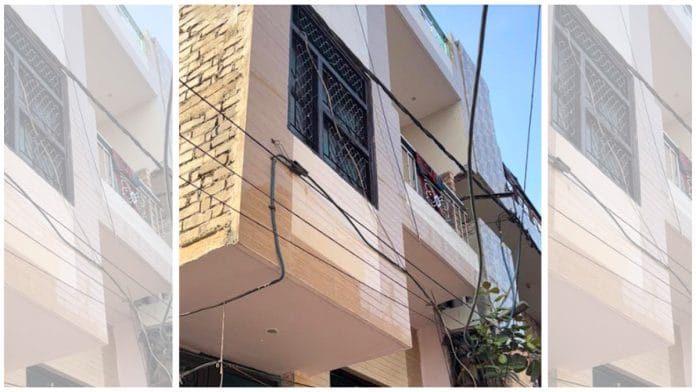New Delhi: An inter-state racket accused of trafficking tribal women and girls from Jharkhand to Delhi is allegedly a “well-oiled” syndicate that has been operational for years and may have trafficked as many as a thousand women, ThePrint has learnt.
The Delhi Police Monday rescued 10 tribal women and girls, some of them minors, from the premises of an “illegal placement agency” where they were allegedly being “kept like sheep and cattle”. Authorities suspect that the “placement agency” in Delhi’s Mukundpur, near Burari, is a front for a trafficking racket.
Of the four identified as accused in the case, three have been arrested but the prime accused is still absconding, police said.
According to the police, the 10 people rescued Monday were allegedly trafficked from Jharkhand’s West Singhbhum district by the accused on the promise of gainful employment. While six were minors, the remaining four were adult women and employed as domestic workers.
“The main accused who was running the racket, Sugad Durg, is still absconding. He had organised this entire syndicate of getting girls from Jharkhand to Delhi over a period of time. His brother Dawood is one of the three people arrested in the case so far,” Deputy Commissioner of Police (Outer North), Brijendra Kumar Yadav, told ThePrint.
All the four accused are from Jharkhand, DCP Yadav said, adding that the “placement agency had no licence”.
An FIR has been registered in this regard under sections 370 (trafficking), 120B (criminal conspiracy) and 34 (common intention) of the Indian Penal Code (IPC) at Delhi’s Bhalswa Dairy police station.
The statements of the rescued people are being recorded in the presence of a magistrate under section 164 of the Code of Criminal Procedure (CrPC).
“Based on their statements, we will add more sections [to the FIR],” said DCP Yadav. He added that the accused had been running a placement agency in Shakarpur for around two-three years before moving to Mukundpur about two months ago.
The police raid Monday was the result of a joint operation by the National Commission for Protection of Child Rights (NCPCR), the Delhi Police’s Anti-Human Trafficking Unit (AHTU), and Bachpan Bachao Andolan (BBA) — a non-profit founded by Nobel Peace Laureate Kailash Satyarthi.
Also Read: This 12-year-old was abducted, married to 52-yr-old. Her rescue exposed ‘child bride’ racket
‘Kept like sheep and cattle’
Manish Sharma, director of Bachpan Bachao Andolan, told ThePrint that the women and girls rescued Monday were being kept in inhumane conditions.
“The rooms were 5 x 5 rooms in which women were forcibly kept like sheep and cattle. There was not even enough space to stand up. There was a stench and no sunlight and the room was burning hot. I don’t know how they were able to live there covered in sweat,” Sharma said.
He added that when they were rescued Monday, some of the women and girls “looked sick”. According to the press release by BBA, they underwent a medical examination and the minors were produced before the Child Welfare Committee (CWC) Wednesday.
“Although the investigation is still going on, it seems it is a case of inter-state trafficking,” said Sharma, who has been part of multiple similar rescue operations since 2007.
Citing the testimonies of the accused, Sharma said he suspects that the alleged racket may have trafficked as many as a thousand women and girls, and had agents in villages across Jharkhand.
“In my experience, Jharkhand, West Bengal, Orissa and Assam are the major states where the tribal girls and their parents are lured into trafficking with employment opportunities and attractive salaries. Over time, the way they operate has been changed — instead of bringing girls in masses, now they get a few girls to escape notice,” Sharma said.
He also underlined that the issue of human trafficking has “only become worse” after the Covid-19 pandemic. Just last week, seven girls hailing from Jharkhand were rescued from an alleged trafficking racket in Delhi and sent for rehabilitation.
According to the National Crime Records Bureau (NCRB) 2020 report, Jharkhand accounted for the fourth highest number (140) of human trafficking cases registered that year, after Telangana (184), Maharashtra (184) and Andhra Pradesh (171). The report also revealed that forced labour (193 cases) was the most commonly found reason for trafficking in Jharkhand, followed by domestic servitude (73) and forced marriages (12).
(Edited by Amrtansh Arora)
Also Read: Pakistan chose China ties over justice, let Chinese ‘bride traffickers’ get away, claims report






